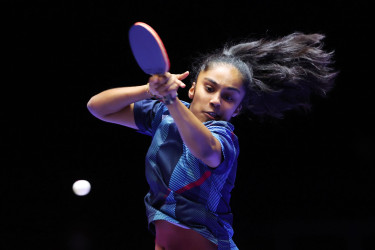7Olympism and society today (2012-2024)
A new era began in London in Great Britain, and it continues in Paris, France, in 2024. The Olympic Games contribute to globalisation that is notable for the acceleration in exchanges and communications. The hyped-up media coverage of this mega-event offers an incomparable echo chamber, including for its opponents.
The London Games in 2012 and Rio de Janeiro in 2016 were at the heart of environmental and societal debate. Sustainability and inclusion became essential issues. The organisers had to offer credible answers to increasingly mistrustful public opinion. Creating an Olympic Team of refugees in 2016 was in response to criticism related to how the Olympic Movement handled the question of human rights.
The Covid-19 pandemic forced the Tokyo Olympic Games planned for 2020 to be postponed by one year. The absence of spectators and the reticence of the Japanese to host foreign athletes and officials while the health policies enforced lockdowns and distancing, were in contrast to the success of television and internet audience figures.
The Paris 2024 Olympic and Paralympic Games - uniting both competitions under a single banner is the expression of a major change - aim to be sustainable and inclusive. The question of their cost and their legacy will, undoubtedly, be much commented upon, as will the results of the French athletes, or the presence of Russian and Belarusian athletes in the middle of the Ukrainian conflict.

From Rio to Tokyo
The competitions were notable for outstanding champions, like the swimmer Michael Phelps, who ended his career in Rio in 2016 with 28 medals, including 23 gold. An absolute record achieved over four Olympics. And yet, since 2012 a form of scepticism has established itself around the Olympic Games. From criticism of the legacy of the London Olympics for the city came more virulent criticism of the Rio Games: excessive costs, corruption, ecological problems and population displacement were denounced. As for Tokyo, the Covid-19 pandemic hit the event hard. It finally took place, but without spectators. Despite these vicissitudes, the Olympic Games remain a major sporting event and the most popular media event to take place in the middle of summer every four years.

Legende
Prithika Pavade, table tennis champion in February 2024
Credit
© Yutaka/AFLO/Presse Sports
The gamble of the 2024 Olympic Games
The Paris 2024 Olympic and Paralympic Games have a stated ambition to be outstanding from the point of view of equality, diversity and ecology. While Paris is hosting the Olympic Games for the third time (like London in 2012 and Los Angeles in 2028), a single organising committee for the Olympic and Paralympic Games makes it different. For the Olympic Games, a new record in the number of athletes, countries represented and spectators is expected. They are the first Games to be completely equal in numbers of men and women. Among others, the young French table tennis player Prithika Pavade, from an immigrant background, embodies the new generation that hopes to stand out in 2024, echoing the Olympic success of other athletes who immigrated to France, since Haitian Constantin Henriquez won a gold medal for France in 1900.







